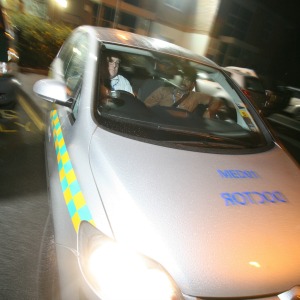GPs in Scotland could soon be offered one-year salaried posts after their three years of training – including out-of-hours work with ‘enhanced support’ and training in out-of-hours care.
The recommendation was made by Professor Sir Lewis Ritchie in a Government-commissioned review of out-of-hours services in Scotland, and the Scottish health secretary has indicated that she would like to implement recommendations from the report.
The review argued that out-of-hours services are not sustainable unless more GPs are recruited, and called for professionals such as GPs, nurses, physios and pharmacists to work together at urgent care ‘resource hubs’ to provide out-of-hours care.
This model will ease GPs’ workload in out-of-hours care because other health professionals would share out-of-hours calls, Professor Ritchie argues.
Existing four-year training posts in Scotland should also be reviewed to ensure that the experience ‘maximises educational opportunities for the future GP workforce,’ he said.
Professor Ritchie also wants to see a national GP performers’ list in Scotland so that GPs do not have to apply separately for each NHS board they wish to work for.
The Scottish Government initiated the review to tackle the challenges of providing out-of-hours (OOH) care for an ageing population.
Professor Ritchie, a GP in Peterhead and former director of public health for NHS Grampian, said: ‘We have asked for new one year posts to be created for GPs after completion of three-year training, and for four-year training to be better configured for urgent GP care.’
He said that GPs ’may feel insufficiently experienced’ in urgent care after their training.
Professor Ritchie added: ’This may be contributing to a reluctance to undertake OOH work. Existing four-year training posts should be reviewed, and in the meantime newly qualified GPs should be offered a salaried one-year post, which will include OOH work with enhanced support and continuing professional development in OOH medical care.’
The review also calls for the introduction of national standards for out-of-hours care, improving records systems and technology.
And GPs should have ‘rapid access to phone advice’ from paediatric specialist staff during daytime and OOH periods.
Professor Ritchie added: ‘The present situation for OOH services is fragile, not sustainable and will worsen unless immediate and robust measures are taken to promote the recruitment and retention of sufficient numbers of GPs and other multidisciplinary team members working in both daytime and OOH services.’
The Scottish Government will publish its response to the review early next year, alongside a detailed implementation plan. Health secretary Shona Robison has suggested that the Government will implement many of Professor Ritchie’s recommendations.
She said: ‘I believe that in the report we have the clear authoritative advice we were looking for.’
Dr Miles Mack, chair of the RCGP in Scotland, said: ‘The RCGP warmly welcomes the inclusive approach and support shown by Professor Sir Lewis Ritchie and his review. We hope this report can provide a lasting, meaningful solution to patients looking for urgent, out-of-hours medical care.’
Pulse October survey
Take our July 2025 survey to potentially win £1.000 worth of tokens













